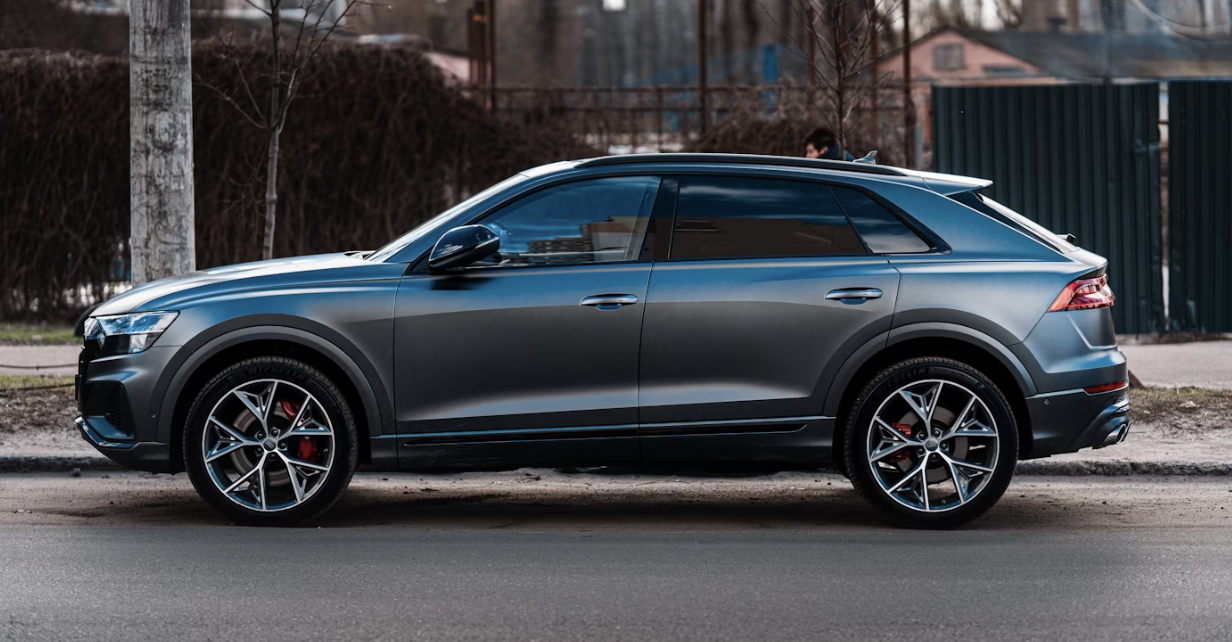Introduction
Winter in Richmond often brings a fair amount of temperature swings, freezing rain, and icy roads, so getting your used family SUV ready before the season hits can make a huge difference. When cold weather catches drivers off guard, it can lead to car trouble, stressful mornings, and even unsafe situations on the road. Making time for a few key checkups beforehand helps your vehicle run smoother and keeps your family safer through snow, slush, and black ice.
If your SUV is your main family vehicle, then it needs to be able to handle daily commutes, school runs, and last-minute errands even during winter conditions. People often overlook small items like tire pressure or frozen washer nozzles until they’re stranded in a parking lot or stuck scraping ice with a weak defroster. Getting ahead of these problems now can give you peace of mind once the first cold snap hits.
Check And Maintain Tires
Your tires are the only part of your SUV that touches the road, so they need to be ready for wet, icy, and snow-covered streets. All-season tires might be okay for mild conditions, but once temperatures drop consistently, winter tires offer better grip and shorter stopping distances. Even if you stick with all-season tires, make sure the tread is deep enough to provide traction on slippery pavement.
Keep an eye on tire pressure, too. Cold air makes the pressure drop, and that can hurt both your fuel efficiency and traction. Tires should be checked at least once a month during the winter, especially after big temperature dips.
Here’s what to check:
- Tire type: Consider switching to winter tires for better traction
- Tread depth: Use a penny to make sure tread is deeper than Lincoln's head
- Tire pressure: Check often and keep it within the recommended range
- Rotation schedule: Rotate every 5,000 to 7,000 miles to get even wear
These small actions go a long way when it comes to stability and stopping power, which becomes even more important with icy curves or slushy traffic.
Inspect And Replace Fluids
Fluids can thicken, freeze, or run low much faster in cold weather. Antifreeze is one of the most important to check as temperatures start dipping. If the coolant mix isn’t balanced, your engine could freeze up, overheat, or suffer long-term damage. Make sure the coolant is filled to the right level and that it’s the correct type for your vehicle.
Another fluid that needs winter attention is your windshield washer. Regular fluid may freeze in the nozzles, leaving you with a smeared windshield and low visibility on messy roads. Switching to a winter-specific formula helps keep things clear, even during freezing drizzle or road salt spray.
Oil also plays a bigger part than you might think. During cold starts, thick oil moves slower and doesn’t protect engine parts as well. Some cars benefit from switching to a lower-viscosity oil in the cold months to help the engine run more smoothly. And don’t forget to keep an eye on your brake fluid levels and condition while you're checking other systems.
These updates don’t take long, but they set your SUV up to run cleaner, heat faster, and start without a hitch all winter long.
Battery And Electrical System Check
Cold temperatures are tough on batteries, especially if the one in your SUV is more than a few years old. Winter mornings can drop battery power right when you need it most, like early school drop-offs or late-night supply runs. Before freezing temps really settle in, it’s smart to have your battery tested. A shop can easily check how much life is left and how well it holds a charge.
Corrosion around the terminals is another reason batteries underperform. If you see white or blue buildup, that’s a sign the connections might not be solid. A quick cleaning with the right tools and tightening the clamps can help power flow better.
Don't forget about the rest of the electrical system either. Shorter days mean using headlights earlier, and you’ll want to know your taillights, blinkers, and interior lights are all working. Your SUV’s HVAC system also needs to be checked. That means making sure the heater, AC, and defrosters are fully functional. A warm cabin and a clear windshield aren’t just about comfort. They're about staying safe when you're navigating through fog, frost, or freezing rain.
Here’s a basic winter battery and electrical checklist:
- Have the battery voltage and health tested by a professional
- Clean the terminals to remove any corrosion
- Confirm headlights, brake lights, and blinkers are working
- Make sure defrosters and cabin heat blow strong and warm
- Listen for delayed starts or dimming lights, both warning signs
Staying warm, being seen on the road, and avoiding sudden failures all come back to how well this system is holding up. So giving it some attention before things get really cold is a smart move.
Safety And Emergency Essentials For Winter
Even when your SUV is running perfectly, winter can throw surprises your way. It’s a good idea to keep a few key items on board throughout the season, just in case road conditions change fast or you get stuck somewhere unexpectedly. Think of it like packing a small bag of just-in-case gear.
Start with the basics like a snow brush and ice scraper. They don’t take up much space but will save you a lot of frustration on cold mornings. Add a compact shovel if you drive in areas that get plowed or drifted snow. Traction mats can also help if your wheels get stuck, but sand or kitty litter work in a pinch too.
For emergencies, keep things that help you stay warm and safe. A blanket, gloves, extra socks, and a flashlight can help you stay comfortable if you have to wait a while. Jumper cables or a jump starter can get you moving again if your battery dies. Add a first-aid kit and a phone charger to round things out.
Here's a handy list of what to keep inside your used family SUV during winter:
- Ice scraper and snow brush
- Small shovel
- Jumper cables or portable jump starter
- Extra gloves, socks, and a blanket
- Flashlight with extra batteries
- First-aid kit
- Cell phone charger (car plug or power bank)
- Bottled water and snacks (in resealable packaging)
- Traction aids like kitty litter or small sandbags
- Emergency flares or reflective triangle
You may never need half of it, but when just one item comes in handy, you’ll be glad it’s there. Preparedness goes a long way when the forecast gets unpredictable.
Ready for Whatever Winter Throws Your Way
Getting your used family SUV ready for winter doesn’t have to feel like a chore. A handful of quick checks and swaps go far in keeping your days running smoothly once cold weather hits Richmond. From keeping your tires in top shape to being prepared with emergency gear, each step adds to your peace of mind and decreases your chances of being stuck in the cold.
Staying on top of maintenance now also helps you avoid bigger repairs later. Cold can make small issues worse, and things like low fluid levels or weak batteries tend to fail when you least expect them to. A ready-for-winter SUV means more reliable starts on dark mornings, less scraping time, and fewer worries about what’s around the next icy corner.
Preparation isn’t about driving in fear. It’s about driving with confidence. When your SUV is fueled up, serviced, loaded with backup gear, and ready to face anything winter throws your way, it can handle family duties just like it does every other season but with a little more grit and control.
For those ready to ensure their SUV is winter-ready, remember that being prepared is about more than just maintenance. Keeping your vehicle fit for winter means fewer worries and a smoother ride, no matter the weather. At United Auto Sales, we're here to help you maximize your driving experience. If you're considering a vehicle upgrade or need expert advice, explore our selection of used family SUV options to find the perfect fit for your family's needs.



